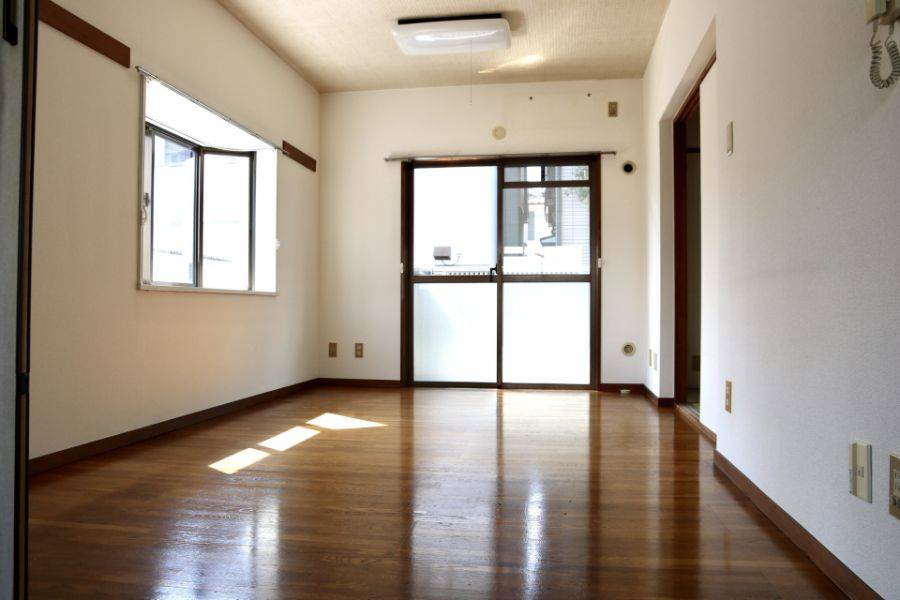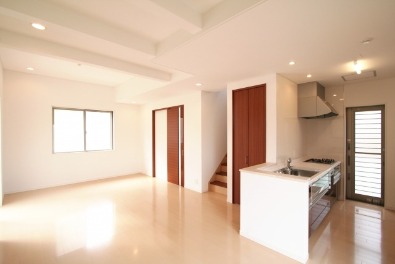What to Expect when Renting an Apartment in Japan
Thursday, November 10, 2022
A guide to make your renting experience as smooth as possible.

[Edited: May 28, 2024]
Finding a home in a Japanese city is a unique experience. It’s probably not as character-building as finding an apartment in New York City but the experience comes with its own set of challenges, frustrations, and ultimately a lot of acceptance before you finally move into your new apartment. Here are a few things to be aware of so you are not caught off guard when finding a home in Japan.
High Turnover
The overall global narrative of Japan veers towards population decrease, aging population, and abandoned houses. According to Mizuho Realty, the vacancy rate for apartments in major cities hovered around 3% in 2018. The pandemic did create some fluctuations in occupancy rates of rental properties in large cities but turnover is still high and vacancy can be low.
For the renter this means two things:
- Central, convenient areas are in high demand, and apartments appear and disappear within a matter of weeks sometimes even less.
- Searching for apartments too far in advance might be disadvantageous because more properties might open up at a later date.
In general, real estate agents recommend that renters allot about 6-8 weeks from searching for an apartment to moving in. This time frame gives the renter a more accurate picture of the apartments available in the market and also gives them enough time to plan and move.
*Pro Tip: March is moving season in Japan. At the end of the fiscal year/beginning of the new fiscal year, companies move employees around as well as a new class of hires enters large companies making it the busiest time for movers. This means moving prices will be more expensive. If you can avoid moving at this time you will save on moving costs but it is also a time when there are the most options in the rental market (but they disappear fast!).
Upfront Costs
Upfront costs can be a bit alarming even for those who have moved locally a few times. Because the system is only loosely standardized, property owners have many avenues to include additional charges.
Reikin or key money is probably on the top of the list for lamentable upfront costs and is entirely at the whim of the property owner. Some real estate agents are of the opinion that key money is falling out of favor but it is still common. You can request your agent to ask the owner for a discount on the key money amount, but this can only be done at the same time that you submit the application for the apartment. What this means is that if you are approved for the apartment but the owner refuses to lower the key money, you will have to bear that cost. The best way to think about it is, if you really want a particular apartment, think of the key money as a sunk cost but you may be pleasantly surprised if the owner agrees to reduce the amount.
In addition to key money, you will be expected to pay:
(*Disclaimer: property pricing happens on a case by case bases, depending on the situation, not all the items listed below will apply, other times there may be additional charges)
- First Month’s Rent
- Lock Change Fee
- Agent Fee: Check with your agent before you start working with them about how much they will charge as their fee
- Guarantor Company Fee: In large cities guarantor company contracts are also becoming the standard for all renters.
Fire Insurance: Fire insurance is standard for all rental contracts, to read more about fire insurance click here
Guarantor Company + Guarantor
In large cities guarantor company contracts are also becoming the standard for all renters. Depending on your immigration status and/or credit history in Japan (and the preference of the owner) you might require both a guarantor and a guarantor company. The purpose of the guarantor is to be liable for your behavior within the building or in relation to the other tenants but the guarantor company insures unpaid rent for the property owner. The rate of renters defaulting on rent has risen in general in big cities, therefore more property owners are requiring the inclusion of guarantor company fees in rental agreements.
2-year commitment
Officially the contract term for a rental agreement can be anything longer than 1 year, anything less than 1 year falls under a different legal category and therefore is extremely rare. The reason why most lease terms are 2 years is that this length seems to best suit the rental market in Japan. However, some rental contracts can be for longer than 2 years so it is important to check the details carefully before proceeding with a lease agreement.

Spaces are small and the layouts are… unique.
It isn’t a secret that homes in Japan are small, but they are also built to fit Japanese living styles and may require some getting used to. Kitchens generally have little to no counter space, separation of rooms can block ventilation and light, and bathroom facilities (sink, toilet, bathing area) are all in separate spaces.
For a complete guide on layouts of Japanese apartments click here.
To understand Japanese bathrooms click here.
No furniture or appliances
Apartments in Japan generally have no furniture or appliances, so you will be expected to purchase your own furniture, air conditioning unit(s), washer/dryer, refrigerator, etc. Older apartments might also not have a stove so one will need to be purchased online or from your nearest home center. See the images below.


You need to turn on your utilities
In theory, you can choose your utility provider but in practice, the majority of apartment buildings have designated providers. Most often in the Kanto area, it will be TEPCO and in the Kansai area, it will be KEPCO for electricity and Tokyo Gas or Osaka Gas for gas. The process of turning on and off utilities can be done through a registration process online and needs to be done by the renter.
Apartment assessment before you move in
A good management company will provide a detailed account, including photos, of any and all damages, even superficial wear and tear, in the apartment. Having this document is extremely important before you move in because it will determine the repairs you will be charged for when you move out. If the management company is not thorough, create a document by yourself and send it to the management company as soon as you move in.
******
As a rule of thumb, the further you go from city centers the standards and rules for rental properties tend to change, and this guide above is most useful for those moving into one of the major urban centers of Japan. Just be aware that the process of finding and moving into an apartment will come with challenges, just be prepared for them so that you can move into a new space as seamlessly as possible.
If you need help looking for a home in Japan Izanau can help! Please feel free to contact us!
About the Author

I've been in Japan so long that I say my heart is Japanese. And still this country impresses me from time to time. In those moments I think, "That's why I love living in Japan."








